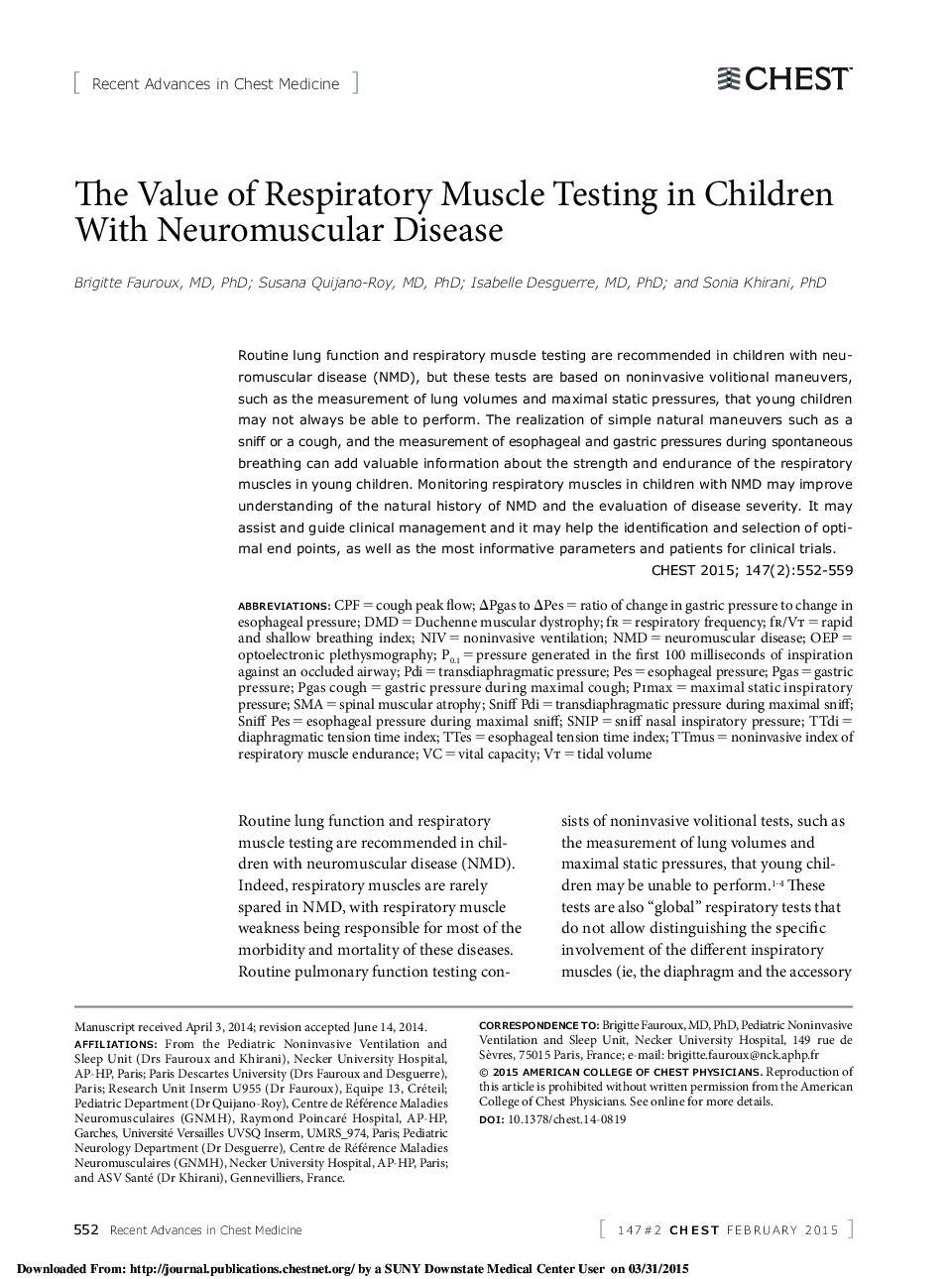| Article ID | Journal | Published Year | Pages | File Type |
|---|---|---|---|---|
| 5955008 | Chest | 2015 | 8 Pages |
Abstract
Routine lung function and respiratory muscle testing are recommended in children with neuromuscular disease (NMD), but these tests are based on noninvasive volitional maneuvers, such as the measurement of lung volumes and maximal static pressures, that young children may not always be able to perform. The realization of simple natural maneuvers such as a sniff or a cough, and the measurement of esophageal and gastric pressures during spontaneous breathing can add valuable information about the strength and endurance of the respiratory muscles in young children. Monitoring respiratory muscles in children with NMD may improve understanding of the natural history of NMD and the evaluation of disease severity. It may assist and guide clinical management and it may help the identification and selection of optimal end points, as well as the most informative parameters and patients for clinical trials.
Keywords
PESP0.1PGASCough peak flowPImaxOEPSNIPNMDPDICPFNIVDMDTV, Tidal volumespinal muscular atrophyNeuromuscular diseasenoninvasive ventilationSMADuchenne muscular dystrophyVital capacityrespiratory frequencyTransdiaphragmatic pressureEsophageal pressureGastric pressureSniff nasal inspiratory pressureOptoelectronic plethysmography
Related Topics
Health Sciences
Medicine and Dentistry
Cardiology and Cardiovascular Medicine
Authors
Brigitte MD, PhD, Susana MD, PhD, Isabelle MD, PhD, Sonia PhD,
